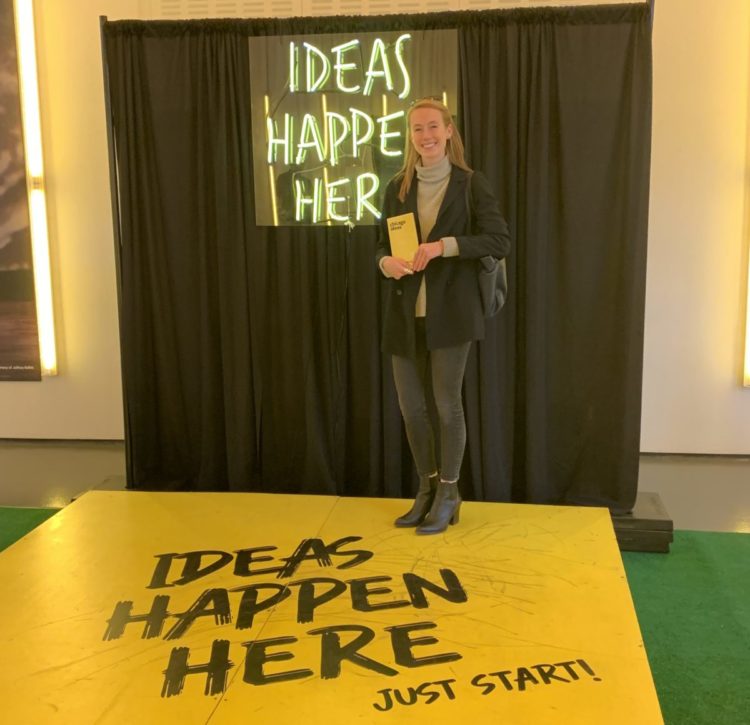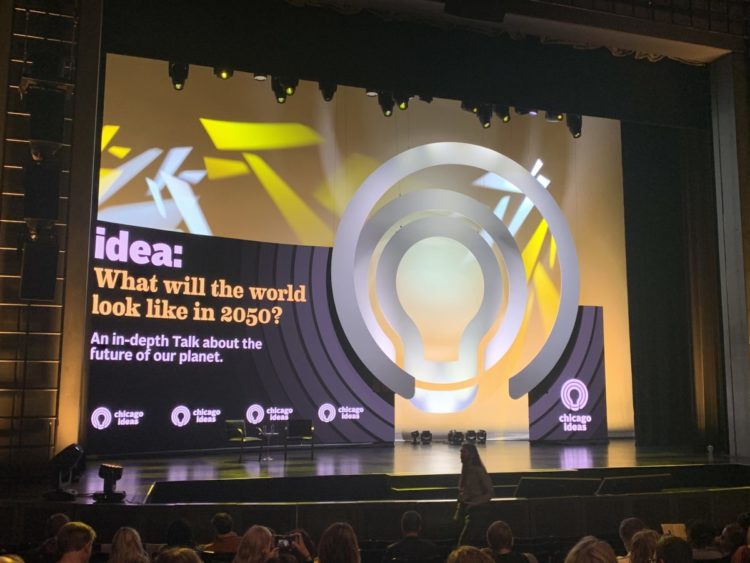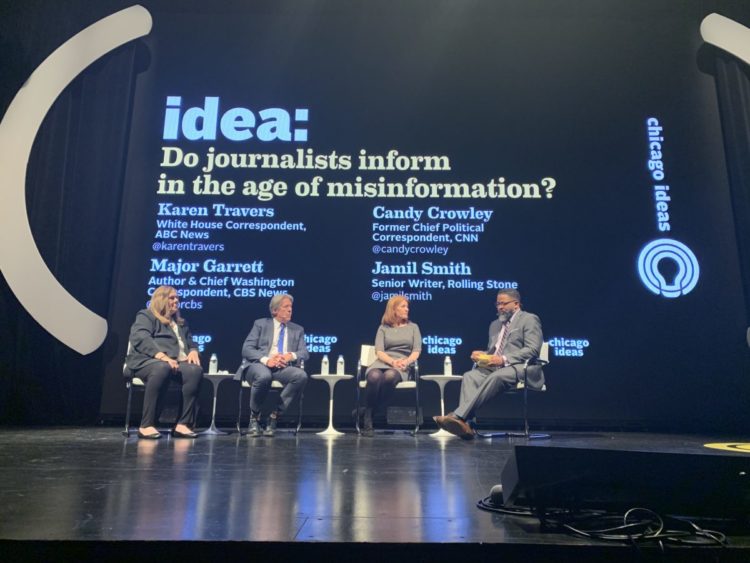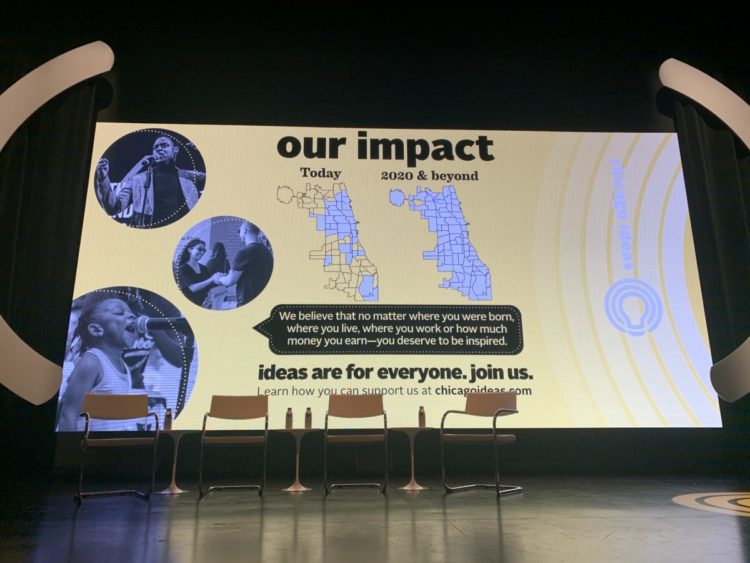
It’s Chicago Ideas Week!

Chicago Ideas was founded almost a decade ago. The group’s core belief is that we all deserve to be inspired by the big ideas that shape our world, and it is through human interaction and the sharing of those ideas, that we will collectively achieve success.
AE has had a long history with Chicago Ideas Week going all the way back to 2012 when we were a Community Partner. However, this was the first Chicago Ideas Week that I personally got to be a part of and I attended two talks.
The first was called, “Idea: What Will the World Look Like in 2050.” This was an in-depth look at the future of our planet and human-kind. Five speakers touched on different aspects of life, culture, science, etc. that we need to consider or change before the year 2050. Topics included ethical gene editing and technologically augmented humans, marine life and the changing chemistry of oceanic water, architecture, and creating local economies in areas with scarce resources, and how to invest in a future that does not yet exist.
While I was expecting a discouraging talk about all the harm humans have caused, and continue to cause, to the planet, it was presented through an optimistic, yet urgent, lens. The speakers each explained the work they do, the importance of it, and the need for others to get involved. The common theme among all speakers was that, while the outlook of our planet by 2050 is not very good, we can collectively change that before it is too late.
The second talk I attended was called, “Idea: Do Journalists Inform in the Age of Misinformation.” During this talk, Jamil Smith, a Senior Writer for Rolling Stone, interviewed political/Washington correspondents and White House reporters to learn what it is like to report on the President and the White House in 2019.

The panelists explained how social media has fundamentally changed the rhythm, pace and capability of candidates to talk to the media. Today, 43% of Americans get their news from Facebook, which changes a lot for traditional journalists and brings forth the question, should social media platforms be held to the same standards as traditional news publications? Social media allows anyone to voice their political beliefs and share political content today, including our President who is very active on Twitter.
Panelist Major Garrett said,
“Social media has brought down hierarchies. Community newspapers have shrunk and social media has taken the place of these hierarchies, creating a new media environment.”
The panelists talked about the need to diversify the news we are consuming in order to know the full story. While covering the White House today may be chaotic and at times very difficult, the resounding sentiment was that credible journalism will always outlast incredible politics.
This panel was especially interesting to me as someone who studied Journalism and is tasked with a lot of content creation in my day-to-day work. Social media is certainly changing the journalistic landscape and writers need to constantly adapt. Hearing the impact of not only shifting reporting mediums but of a president who has a relationship with the media that has never been seen before, was incredibly interesting.

For AE Marketing Group, working in a creative industry means that we are continuously tasked with pitching new and exciting ideas. Being part of a community that inspires people to think big and share their ideas, has been fundamental in our own ideation. Although the topics of the talks I attended may not directly impact or affect the work AE Marketing Group does, seeing panelists who are impassioned about the ideas they are sharing and the work they are doing, is inspiring to all.